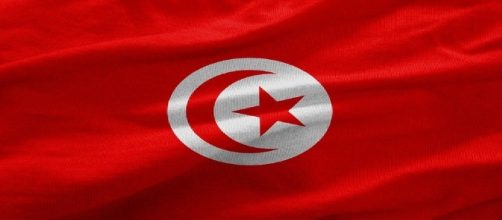Turkish opposition parties have refused to admit defeat in yesterday's referendum on constitutional reforms.
The main opposition party to Turkish President Recip Tayyip Erdogan, the People's Republican Party (CHP), have issued a statement saying the predicted result is illegitimate.
Erdal Aksunger, deputy chairman of the CHP, said bullying tactics had been used to skewer the referendum result in the Government's favour.
He said nearly 3 million votes cast yesterday are fraudulent.
But President Erdogan hit back at critics, saying they are trying to dwarf his conceded triumph in a vote that will grant him significant new powers.
However, the electoral board is yet to confirm the final count and informed the Turkish head of state it will be clarified in over a week's time.
Transition to a presidential system
If the final result suggests the Government won the vote, Turkey will immediately transition from a parliamentary democracy to a presidential one.
Yet this would result in Mr. Erdogan being able to secure power until 2029.
Because of these changes, the post of prime minister will be abolished.
Instead, the current President would possess the power to draw up budgets, issue a state of emergency and implement decrees appointing ministers by avoiding parliamentary approval.
Turkey is expected to hold elections in 2019, which will witness these constitutional changes implemented by then.
Bitter divisions
This referendum has bitterly divided Turks throughout the country. Opinion polls suggest the 'yes' side will win with a narrow margin, but cities like Istanbul and the Kurdish southeast are likely to vote 'no.'
President Erdogan defended the radical changes he intends to introduce. He says the current constitution is outdated due to changed circumstances since the 1980 military coup.
This event enabled generals to dictate the terms of the constitution in order to tackle political and security issues in Turkey and end the practice of forming weak coalition governments.
Yet opposition parties have attacked President Erdogan for failing to respect the current constitution.
They claim this referendum has been staged to enable him to gain more powers to prevent events like last June's revolt, which saw 200 journalists arrested and 120 media outlets closed.
The electoral board is fighting back against claims from opposition parties that many ballots are fraudulent.
They provided a statement on their website before the polls closed saying they will refuse to certify fraudulent votes.
Vow to challenge the result
Despite this, the CHP is refusing to acknowledge Erdogan's victory. They vow to challenge 37% of votes, arguing the Turkish Government interfered with the ballots to push for a 'yes' victory.
A Kurdish opposition party also refuses to accept the result.
Istanbul, one of the cities that overwhelmingly rejected the changes, saw residents protest against the result by banging pots and pans from their neighbourhoods.
But Turkish Prime Minister, Binali Yildirim, said this result marks a new beginning for Turkish democracy.
President Erdogan said to reporters in Istanbul that he believes he won by a margin of 1.3 million votes.
After acknowledging the part Turkish citizens played in delivering the likely result, he challenged Western powers to respect the wishes of his people to approve of 18 constitutional changes.
However, this result could cause further strains in Turkey's relationship with the European Union.
Turkish EU membership was a hot issue in last year's EU Referendum in Britain, which saw the pro-Brexit group Vote Leave claim it will happen soon. But Stronger In, the pro-EU group, claimed Britain could veto their membership bid and that they will not be able to join until the year 3000.
This is due to their lack of democratic government and occupation of northern Cyprus.
This referendum could see Turkish EU membership being delayed beyond the year 3000.
Relations between Turkey and the superbloc were also strained by failures to draw up an agreement to ensure the smooth passage of refugees to Europe.
Before becoming president in 2014, Mr. Erdogan was prime minister in between 2003-14.

